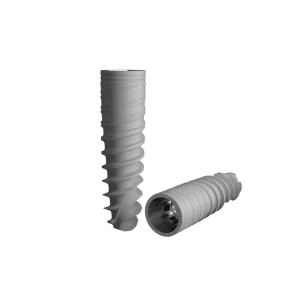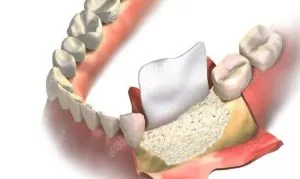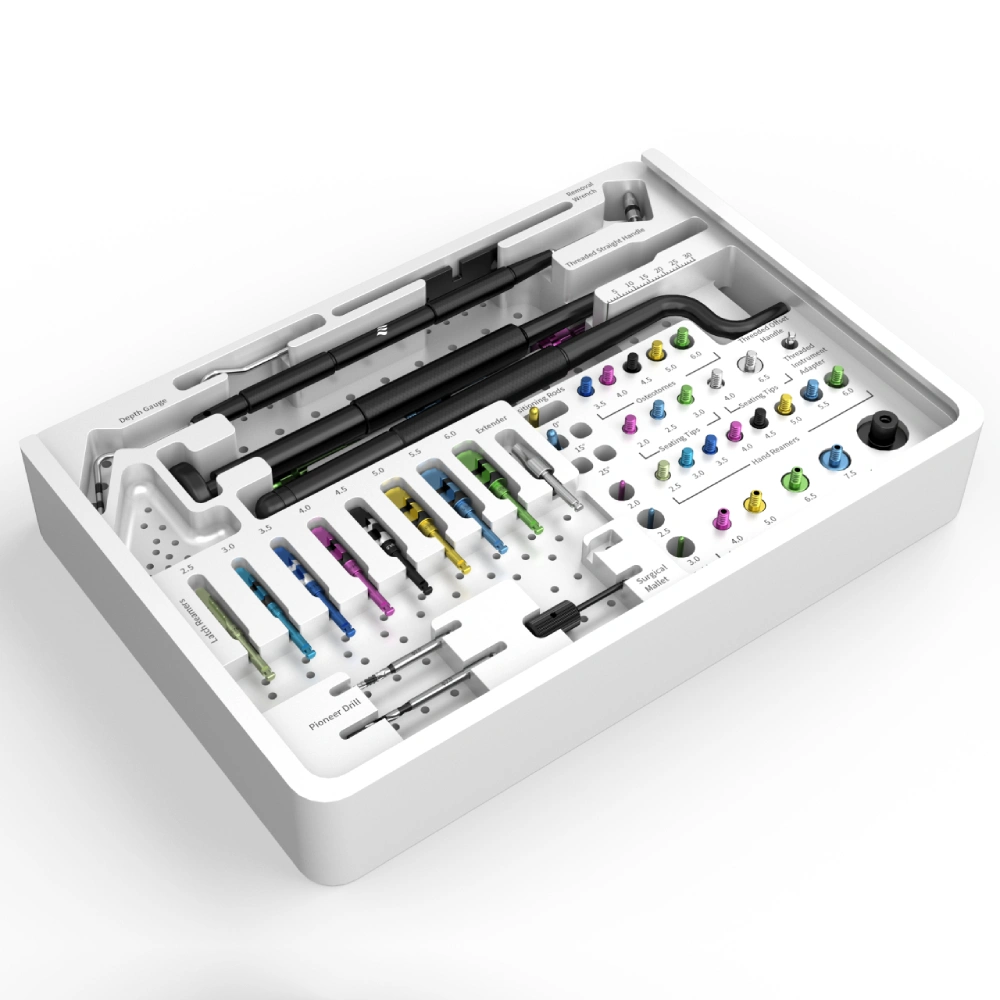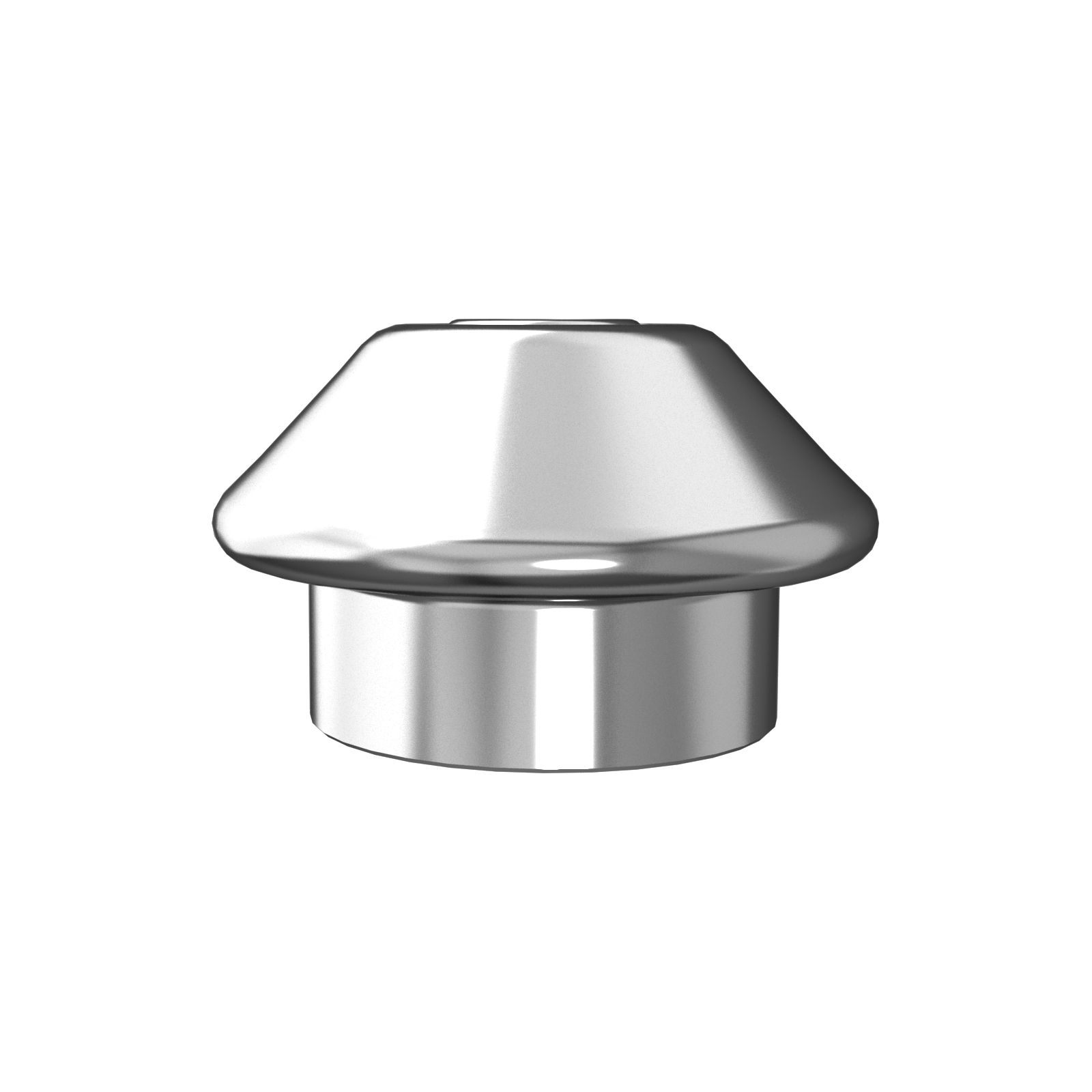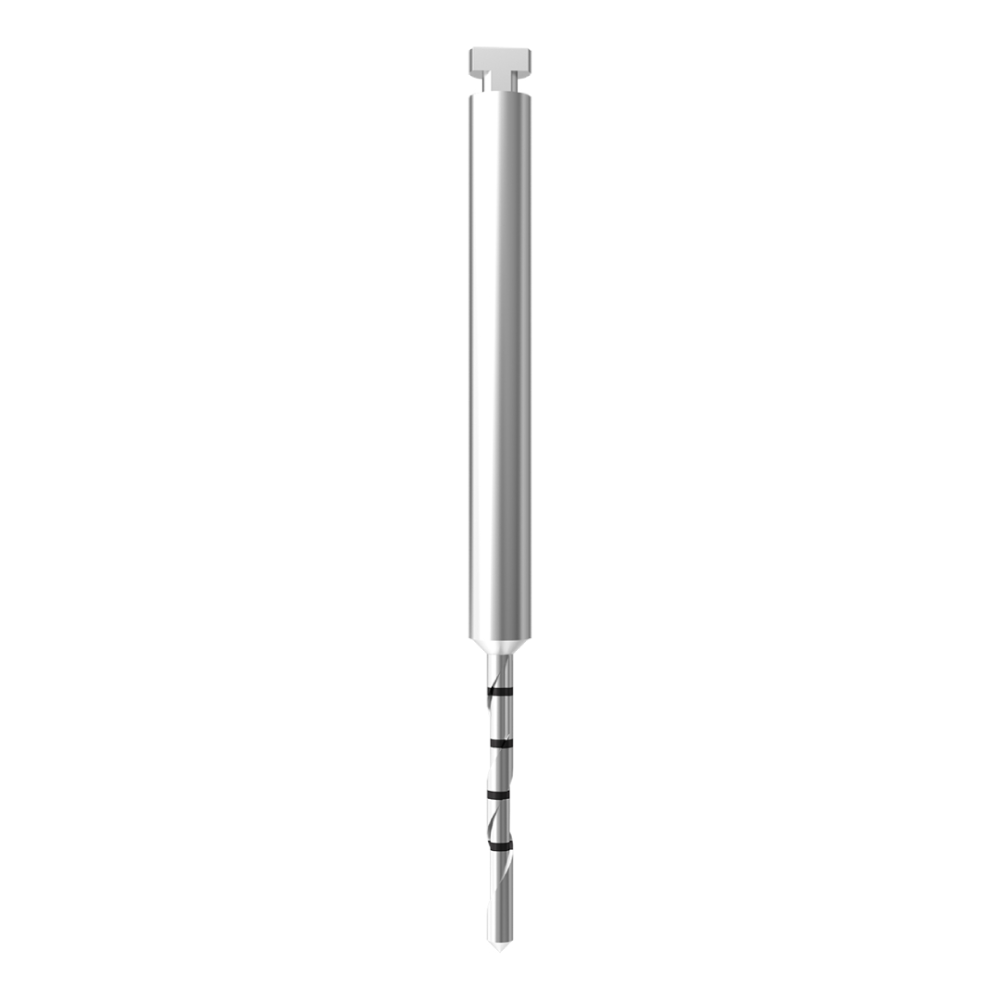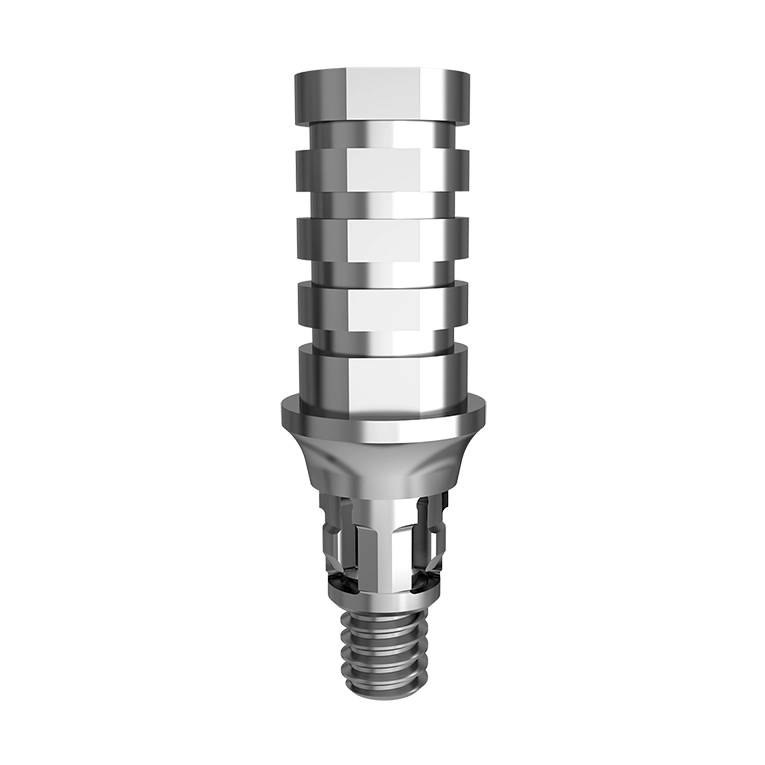
Nobel Biocare holds a prominent position in the dental implant industry and is hailed as the “Father of Dental Implants.” Since its launch in the 1960s, the brand has led industry development with its superior quality and innovative technology. With a rich history of clinical applications and successful cases, Nobel Biocare is recognized globally as a premium brand for dental implants.
Nobel Biocare excels in material selection, design innovation, and technical support, offering comprehensive oral implant solutions that range from single-tooth replacements to full-mouth edentulous treatments. These solutions include implant systems, personalized restorative options, and digital treatment planning software.
For dental professionals, compatibility with the Nobel system is essential as it ensures implant stability, long-term success, and a broader range of treatment options, ultimately enhancing patient satisfaction.
This blog aims to address common questions about implant compatibility and highlight the importance of choosing compatible implant options to ensure optimal treatment outcomes.
What implant system is compatible with Nobel?
In the field of dental implants, system compatibility is a critical factor. It not only influences the success rate of the surgery but also directly impacts the patient’s post-operative recovery and satisfaction. When two or more implant systems are compatible, they can work together seamlessly in the same clinical environment, delivering more precise, efficient, and stable treatment outcomes for patients.
DentalMaster’s DMD implant system is highly compatible with the NobelActive implant system, while the DME implant system is specifically designed to be compatible with the Nobel Parallel CC system. This compatibility is reflected in several key areas:
Matching Thread Design and Platform Dimensions
The DMD and DME systems are designed with a strong focus on compatibility with the Nobel implants system. Their thread design and platform dimensions align closely with Nobel’s, ensuring implant stability and long-term success in the oral cavity. This thoughtful design simplifies surgical procedures, reduces risks, and enhances patient comfort.
Seamless Integration with Existing Tools and Components
Beyond thread design and platform dimensions, the DMD and DME systems integrate seamlessly with the existing tools and components of the Nobel system. This means that during surgery, practitioners can use their current equipment without the need for replacements. This not only improves surgical efficiency but also reduces costs, offering patients a more economical and practical treatment option.
Reliability of DMD and DME Systems
The DMD implant system, with its unique thread structure and surface treatment technology, ensures immediate load-bearing capacity post-implantation. This feature gives it a significant advantage in immediate implant procedures, reducing treatment time and patient discomfort. The DME system, on the other hand, is well-suited for cases with special bone conditions or low bone volume. Its diverse shapes, sizes, and secure anchoring methods effectively minimize the risk of implant failure due to insufficient bone volume.
In summary, DentalMaster’s DMD and DME systems stand out as highly compatible options with the Nobel implants system. Their matching thread designs, platform dimensions, and seamless integration with existing tools and components provide patients with precise, efficient, and stable treatment solutions. Additionally, the reliability of the DMD and DME systems further enhances their competitiveness in clinical settings. For dental professionals, choosing the DMD and DME systems as compatible options with the Nobel system is undoubtedly a smart decision.
Is Nobel a Good Implant?
Leading the way in the production of dental implants worldwide, Nobel Biocare is well-known for its superior goods and cutting-edge technology. Nobel Biocare has built a solid reputation and taken the lead in the implant business since completing the first titanium implant procedure in 1965. Dentists and patients throughout the globe trust it since its products are accessible in more than 80 countries.
Nobel Implants’ Distinctive Features
High Stability at First
Even in difficult bone situations, including soft bone or new extraction sites, Nobel Biocare implants, like the NobelActive series, are designed to provide strong initial stability. The instant loading made possible by this design drastically cuts down on the amount of time patients need to be treated.
Intensive Innovation and Research
Research and development are priorities for Nobel Biocare. Scientific literature and thorough clinical studies support its goods. To improve implant longevity and biocompatibility and speed up osseointegration, the business consistently offers innovative technologies, such as Xeal and TiUltra surface treatments.
Demonstrated Clinical Achievement
Nobel implants have a remarkable clinical success rate. For example, with a success rate of up to 98%, the All-on-4 implant procedure has helped over 250,000 edentulous patients regain their oral function. Nobel Biocare also provides a lifetime guarantee on their goods, which gives patients even more assurance in their dependability.
What Are NobelActive Implants Made Of?
NobelActive implants are crafted from Grade 4 commercially pure titanium, a material with profound significance in the field of dental implants. This choice is driven by pure titanium’s exceptional strength, superior corrosion resistance, and, most importantly, its minimal toxicity to human tissue, demonstrating excellent biocompatibility. This means that when pure titanium is implanted in the body, it does not cause adverse reactions or allergies, allowing it to harmonize with surrounding tissues.
Biocompatibility: A Key to Success
Biocompatibility is a critical factor in the success of dental implants. It ensures that the implant can bond effectively with surrounding tissue, guaranteeing stability and long-term results. Pure titanium’s outstanding biocompatibility makes it the material of choice for dental implants, enabling patients to experience reduced discomfort and faster recovery post-surgery.
Durability and Resilience
In addition to biocompatibility, durability is an indispensable attribute of dental implants. Grade 4 commercially pure titanium offers high strength and corrosion resistance, ensuring the implant remains stable in the challenging oral environment over the long term. Whether enduring daily chewing pressures or adapting to changes in the oral environment, titanium implants maintain their original form and function, providing patients with lasting results.
TiUnite Surface Treatment for Enhanced Osseointegration
NobelActive implants feature the innovative TiUnite surface treatment technology. This technology increases the roughness of the implant surface and enhances its osseoconductive properties, significantly improving bone integration. Osseointegration, a hallmark of implant success, signifies the formation of a strong bond between the implant and surrounding bone tissue, ensuring stability and long-term viability.
TiUnite technology accelerates the speed and quality of osseointegration while enhancing the long-term stability of the implant. This allows patients to enjoy extended treatment benefits, reducing the inconvenience and risks associated with implant loosening or failure.
Design for Stability and Precision
NobelActive implants are designed with a unique tapered body and thread pattern. The tapered body, inspired by the natural shape of a tooth root, provides robust support. The thread pattern maximizes the initial contact area and delivers primary stability, further strengthening the implant’s position and security.
Compatible with NobelActive
The DMD Implant System is fully compatible with NobelActive, a widely adopted and mature dental implant system known for its innovative design and clinical versatility. This compatibility ensures that DMD implants match NobelActive’s thread design, platform dimensions, and prosthetic connections, allowing seamless integration with existing components and tools. Leveraging NobelActive’s established market presence and proven success, the DMD system provides dental professionals with a reliable and cost-effective solution for diverse clinical scenarios, ensuring excellent treatment outcomes and streamlined workflows.
What Materials Are Nobel Dental Implants Made Of?
Nobel dental implants are made from premium pure titanium and titanium alloys, which are extensively employed in the dental implant industry due to their remarkable biocompatibility and performance.
As the main components for dental implants, pure titanium and titanium alloys have many benefits. First of all, they can tolerate the chemicals found in the oral environment because of their exceptional corrosion resistance. This guarantees the implants’ long-term stability and endurance, giving patients long-lasting treatment results without having to worry about corrosion-related implant failure.
Second, osseointegration—the process by which implants join with human bone to create a strong support structure—is a strength of these materials. An essential component of dental implants’ long-term durability and success is their exceptional osseointegration capacity. Nobel dental implants, which are composed of high-quality titanium and titanium alloys, exhibit exceptional bone compatibility, guaranteeing a smooth integration with the surrounding soft and hard tissues while lowering the possibility of rejection.
Nobel dental implants include cutting-edge patented surface technologies like TiUnite in addition to the inherent benefits of the materials. By making the implant surface rougher and more active, these surface treatments speed up and improve the quality of osseointegration. TiUnite technology’s “osteoconductive” qualities encourage quicker bone cell adhesion and bonding, greatly enhancing the implants’ initial stability and long-term success rates.
The pure titanium and titanium alloys used in Nobel dental implants are notable for their exceptional osseointegration, corrosion resistance, and biocompatibility when compared to materials used in other industry-leading implant systems. These implants provide improved performance and success rates when paired with cutting-edge surface treatments like TiUnite, solidifying their standing as a top option in dental implantology and a dependable therapy for patients around.
Why Choose Nobel-Compatible Implants?
Advantages for Dental Practitioners:
Economical Without Sacrificing Quality: Nobel-compatible implants provide a cost-effective option while upholding the exacting performance and dependability requirements for dental operations.
Simplified Integration: The learning curve for dental professionals is greatly decreased by the fact that these implants are designed to work with current equipment and techniques.
Features of DMD and DME Implant Systems:
- Precision-Engineered Components: Every part is painstakingly made to guarantee flawless operation and outstanding robustness.
- Superior Surface Treatments: State-of-the-art methods improve osseointegration, encouraging a quicker and more robust attachment between the implant and the bone.
- Verified therapeutic Success: Case studies from the real world show how these systems may be used successfully in a variety of therapeutic settings, producing dependable results for patients and professionals.
FAQs About Nobel-Compatible Implants
How to Choose the Right Compatible System for Your Practice?
When selecting the appropriate Nobel-compatible implant system, dental professionals should consider the following factors:
- Patient Needs: Tailor the choice of implant type and size based on the patient’s oral condition, reasons for tooth loss, timeline, periodontal health, and jawbone density, height, and width.
- System Features: Understand the characteristics of various Nobel implant systems. For example, the Active implant system is ideal for anterior aesthetic restorations and immediate implant procedures, while the PCC system suits anterior, posterior, and ALL-ON-4 semi/full-mouth restorations.
- Cost-Effectiveness: Balance quality with cost by considering factors like material costs, surgical expenses, and long-term maintenance costs.
- Practitioner Experience: Opt for systems the practitioner is experienced with to ensure smooth surgery and successful implant placement.
Are There Any Limitations to Using Nobel-Compatible Systems?
Using Nobel-compatible implant systems may have the following limitations:
- Patient Conditions: Certain patients may not be suitable candidates for implant surgery due to severe cardiovascular diseases, hematological disorders, uncontrolled diabetes, significant liver or kidney dysfunction, mental health issues, severe untreated periodontal disease, oral mucosal conditions, inadequate alveolar bone volume or quality, poor occlusion, or restricted mouth opening.
- System Compatibility: While Nobel implant systems offer broad compatibility, component differences across systems can exist. Ensuring compatibility and proper fit between components is crucial to avoid surgical errors or failures.
- Surgical Procedures: Implant surgery requires precise techniques and measurements. Practitioners must have extensive experience and skills to ensure successful surgeries and implant integration.
What Training or Tools Are Needed for Seamless Integration?
To achieve seamless integration with Nobel-compatible implants, dental professionals should undertake the following training and prepare appropriate tools:
- Professional Training:
- Attend specialized training on implant systems, covering surgical techniques, system features, and component compatibility.
- Learn proper use and maintenance of equipment and tools required for the implant system.
- Tool Preparation:
- Equip the practice with tools and instruments compatible with Nobel implant systems, such as surgical blades, drills, and screwdrivers.
- Ensure all tools and equipment meet standards and requirements to guarantee safety and effectiveness during surgery.
- Integration Techniques:
- Master advanced integration techniques, such as digital implant technology and guided surgery, to enhance precision and efficiency.
- Familiarize with software and hardware related to the implant system for improved planning and execution of procedures.
Conclusion
Nobel implants stand out in the dental implant field due to their exceptional quality, extensive compatibility, and advanced implant technologies. Conversely, interoperable systems like as DMDriving have special benefits and features that provide patients and dental practitioners more options.
In order to provide your patients with better, more individualized therapy alternatives, we urge you to investigate these compatibility possibilities. We cordially encourage you to visit our website or arrange a consultation to speak with our knowledgeable staff one-on-one and discover more about the features and advantages of these systems.
You can get expert direction and customized counsel here to assist you in making wise choices. Together, let’s develop and create dental implant technology!


